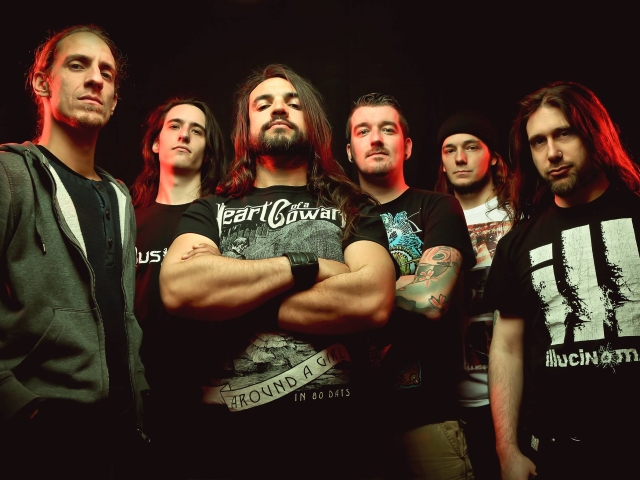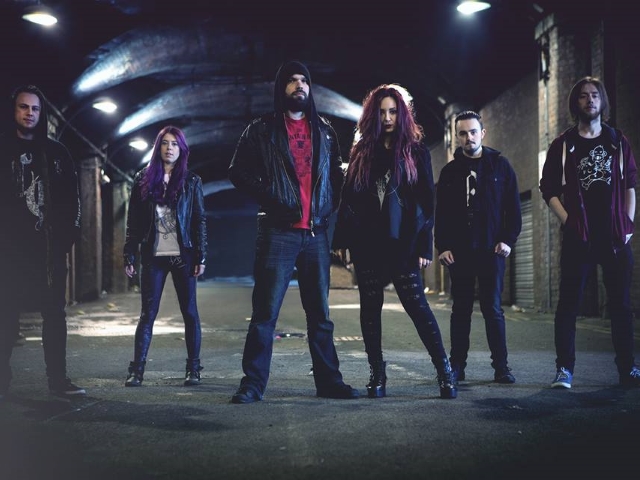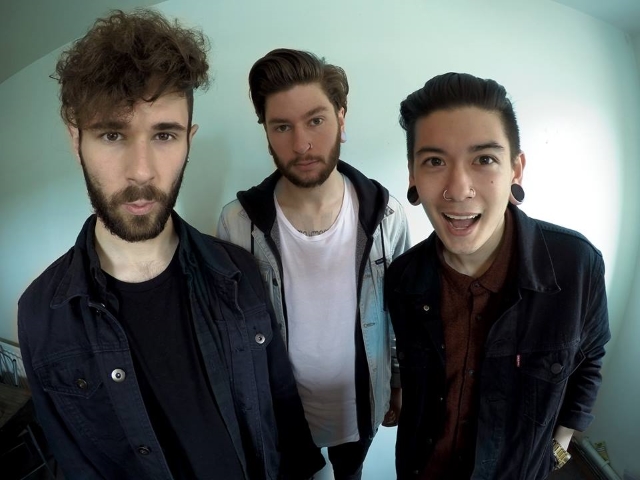One of tech metal’s forerunners alongside bands like Sikth and Meshuggah, Dutch six-piece Textures are one of the genre’s most revered bands. Playing undercard to Sunday headliners Between The Buried & Me, we spoke with drummer Stef Broks and vocalist Daniël De Jongh to get the lowdown on their new double album venture and to get their take on the Tech-Fest experience.
Quite a lot has happened between the release of Dualism in 2011 and Phenotype this year, is that why there was such a long wait?
Stef: Yeah, we had to find a new guitarist, that took some time and also when we found Joe (Tal, guitar) the new guitar player, that takes some time to get used to each other and get involved with the writing process and stuff, so yeah we took some extra time, we did a little tour in 2014. It was our ten year anniversary in 2014 so it was cool to do a tour and take some extra time for the writing and recording as well.
What does Joe bring to Textures that wasn’t there before?
S: He’s an amazing player to start with, he’s very in his element with leads and solos and stuff, so we thought “ok we’ll do more solos and leads than previous albums.” The next two (records) have some really special ideals, really freaky riffs and rhythms, also a bit of death metal and thrashy fast parts. He threw in a lot of crazy stuff and we thought “ok, let’s try to incorporate it and make it Textures-worthy”. Some of his ideas were too crazy even for us.
You guys had a lot of time to refine the material in the four years between releases, how did that affect the process?
S: For every album we have a bunch of ideas, we put all the MP3s and demos in one big folder, and every album some of those are left so it’s always cool to look in that old folder and “hey, maybe we can use this in this new song and combine things” so we had some extra time to combine new stuff and find some special stuff.
What’s the connection between the two albums?
Daniël: Musically and vocally it’s not connected – not yet at least, Phenotype is more song based and Genotype will be one stretched out, epic song.
S: The connection between the two, you’ll hear some things that will come back, guitar lines, vocal lines, a riff that’s in a different structure, so that’ll be the real connection between the two albums. Genotype will be way more eclectic – way more space.
How close is it to completion?
S: A big part is written, but we’re still finishing it up, still a lot of work to do.
Have you found it quite a challenge since it’s your first double album? Has it been quite refreshing as opposed to just one song after the other?
S: We always wanted to do something like this, but we felt like ok we can make 20 songs or so and put it on a double disc and release it all at the same time but the focus of the last ten songs is gone, it’s too much info so it’s better to spread it and release it in two timeframes with it still sounding one.
It’s not uncommon to have grand multi-faceted double albums in progressive metal, so was that a conscious decision to avoid the listening fatigue that often comes with releases like that?
S: At first we had the thought of releasing it a few months apart but then still people wouldn’t have the time to digest the first album so that’s the main reason that we didn’t release it at once, so they can focus on the second album.
How has it been playing these songs? Is there any plan to play the albums in one go or anything like that?
S: We’re thinking it would be cool to have a special show or a few shows to we play them as a whole but I don’t know. At least some big parts will be played live for sure.
Your ex-guitar player played the role of producer on the albums, can you tell us more about the relationship you have with him? Does he get involved in the writing process?
S: No, it’s more just recordings now. Of course he tells us when it’s not worthy to record but Phenotype we recorded as well we recorded with him and he didn’t have any comments – maybe a some tips here and there with recording or an extra melody but most we did ourselves.
You guys have been a band for a longer time than most of the bands on this bill. It always seems like when these younger bands talk about influences they often mention people like yourselves, Meshuggah and Sikth etc, what advice would you give to these younger bands to achieve that kind of longevity?
D: The main thing would be to try to have your own thing, be unique. Although it’s really hard in these times because there’s so many bands, we are also influenced by bands from the past, so even there it’s hard.
S: For me a band really stands out when they have songs that really have their own face, one special melody that returns that you really can recognise. That’s what I miss in young bands, all the songs sound the same, it’s all riffs, riffs, riffs – a bit like formula based chunks, but when they have song that has a recognisable melody it’s really cool, but then the rest are all the same, so try to make all the songs, or at least your sound really recognisable.
That’s something we’ve noticed a lot this weekend, while there’s no shortage of riffs, it’s the bands with a really strong sense of melody that have stood out.
S: Yeah, all the “dur-dur-dur-duh-duh-digur-duh-dur”, it makes all the songs in the same tonality, and that’s when for me as a listener it gets boring because it’s just in the same scale and tonality. To move the song up to the third fret would be special, and never use the open string. Many of the bands just use riffs with open strings and it gets boring fast.
How does playing a niche festival like Tech-Fest different from a normal festival or tour situation?
S: It is different. We played some mainstream festivals in Holland for example, with we as the heavy band as the festival, and people are coming to that show because we’re one of the only loud bands. But when we’re at a festival like this, the first time we were at Tech-Fest it was crazy, people really knew a lot of our lyrics, and they knew the rhythms and it’s really cool to see.
This is actually our first year, and it’s been crazy to see people singing along to instrumental bands like Animals As Leaders. This is actually the festival’s biggest year yet, how important do you think festivals like this are to the scene and why do you think it’s continuing to grow?
D: Every year there are more and more of these festivals in different countries which is a good thing I think for this wave, because it keeps it alive. It is a genre and I don’t know if it’s going to last forever, it’s the same with nu metal in the 90s and early 00s, except maybe the big bands. So I think that’s the main reason why these festivals are good because then these bands keep on staying there, and hopefully get bigger.
Interview by: Josh Graham





